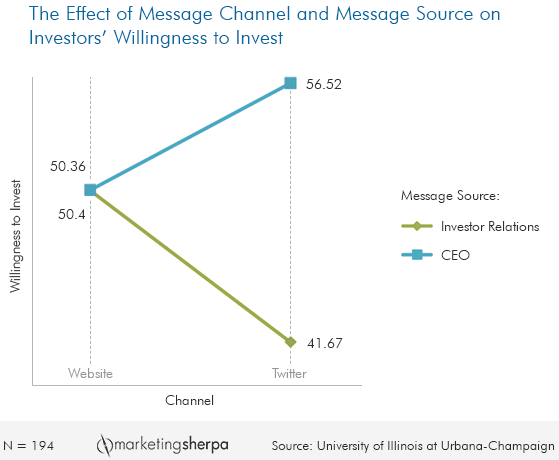4 October 2015 | Articles, Articles 2015, Communications | By Christophe Lachnitt
CEOs Should Embrace Twitter
This is the conclusion of a study carried out by a team from the Universities of Illinois and Washington.
The team conducted an experiment with 194 business students. They told the students to pretend that they owned a stock portfolio and were looking to invest in an additional company.
To make their decision, the students read press releases published by the company and looked at either its Investor Relations Department’s Twitter feed or its CEO’s.
The experiment showed that participants exposed to a negative financial information about the company were more likely to invest in it when they followed its CEO’s Twitter account than when they read its Investor Relations Department’s Twitter feed or the information published on its corporate website.

Following a business executive on a social network creates the illusion of a personal relationship – and therefore builds trust – with them. It was impossible for individual investors to develop this kind of connection with a CEO before the advent of the social web.
Obviously, this positive effect is not limited to public corporations. CEOs of private companies should also use Twitter to engage with their employees and customers.
Corporate leaders active on Twitter should share more than just corporate information. They should write about their personal interests and, if they feel comfortable, share family events.
Often, this content sheds light on the corporate values promoted by the CEO. It also helps brands grow their digital audience since the most active CEOs on Twitter have more followers than their respective companies. Last but not least, social networks are a way for corporate leaders to gather feedback from their stakeholders.
As I explained in this article, T-Mobile’s CEO John Legere provides a great example of mixing his professional and personal lives on Twitter to advance his corporate goals.


